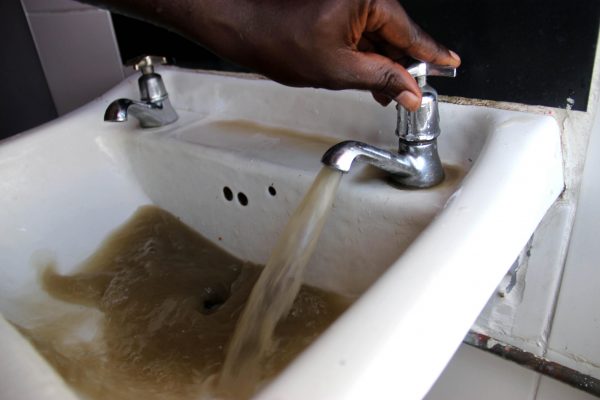
By KENNEDY NYAVAYA
The water situation in the country’s capital city, Harare, has reached alarning levels.
The past weeks have been characterised by fighting between government and the city council over whether to declare this a national state of emergency or not.
Regardless, the fact is that the crisis is at a tipping point. Residents have been left with no choice, but to queue at boreholes for hours, buy the water at exorbitant prices or get it from unprotected wells.
Most taps have been running dry for months.
We could choose to play the political blame game but, that would not solve the situation as has been proven by the back and forth wars between local authorities and central government.
In fact, we are all responsible for the desperate situation we find ourselves in today because while the authorities can be blamed for lack of forward planning and obsolete infrastructure prone to frequent bursts, we have not been using the resource sparingly.
The consequences of water shortages stretch from health scares, death in worst instances and civil strife, according to former United Nations deputy secretary-general Jan Eliasson in one of his statements.
- Chamisa under fire over US$120K donation
- Mavhunga puts DeMbare into Chibuku quarterfinals
- Pension funds bet on Cabora Bassa oilfields
- Councils defy govt fire tender directive
Keep Reading
“Water easily becomes a source of conflict when this precious resource is inequitably allocated,” he said.
True to his statement, violent water conflicts have become frequent within the continent and abroad. Locally the uneasiness can be felt in communities as people try to map a way out of the misery caused by scanty supply of portable clean water.
Ironically, it is largely human activity that has caused great damage to the environment and in turn disrupted the natural ways, which the earth keeps hydrated.
Successive droughts, mostly due to little rains, should be a lesson to all of us that our healthy survival now largely depends on the ability to manage and save water.
All hope is not lost. There are ways in which not only Harare but other communities with or without water woes can take advantage of the rain season, predicted to yield between normal “with a bias towards below normal rains throughout the 2019/20 season”, draws close.
Water harvesting
Rainwater harvesting can be loosely explained as: “the collection of water from surfaces on which rain falls and subsequently storing this water for later use.”
While this may seem an easy water collection method that has been around since time immemorial, it is not being practiced extensively in the country, especially at individual level.
By capturing water directly, people can significantly reduce dependence on water storage dams. This would also place less stress on official water sources and can potentially reduce the need to expand them or build new ones, considering that the government always complains about lack of funding.
Not only is water harvesting good for one’s pockets by minimising rates payable to local authorities, it also provides fresh water.
In other places water collected is redirected to a well, borehole or reservoir for storage. The water can be used for watering gardens, livestock and domestic use. The harvested water, if safely stored, can also be used for drinking.
Rainwater harvesting might help raise the country’s depleted underground water levels since most communities now rely on borehole water. Stop wetland construction and pollution
A wetland is a land area that is saturated with water, either permanently or seasonally, such that it takes on the characteristics of a distinct ecosystem. This is basically where water meets land and this includes mangroves, peatlands and marshes among other water bodies.
In essence, wetlands play a pivotal role in the water cycle as they recharge underground water by allowing it to sink into the soil, reducing high runoff which is a major cause for flooding.
However, in major cities like Harare they are a major water source after run off, but they are under severe threat from construction as well as cultivation.
According to a government survey, there are approximately 1 117 wetlands within the country’s borders, which cover about 1,5% of the total surface area.
As of last year, only a fifth of the wetlands we reported to be in a healthy functioning state, which means that the situation is fast turning dire while the relevant authorities watch.
The building on wetlands and subsequent pollution of water sources has disrupted our capacity for water storage at a time conservation of the resource has become an integral part for human survival following inconsistent rainfall patterns in the recent past.
It has to stop if we have any chance of securing sources of clean water that can satisfy the growing population.
Think about the future
Notwithstanding the fact that life nowadays has become extremely about individualism and self-centered there is need for current generations to spare a thought for the planet they will leave behind. What humanity has done over time has been to add on to the crises as a result of careless living.
This has necessitated the growth of movements like Fridays for Future led by Swedish teen Greta Thunberg. However, apart from relenting to activism pressure, individuals should have self-introspection and think about whether they would enjoy an unbearably hot and dry planet.
If not, one should be environmentally conscious before making any decision in order to have a short-term satisfaction.
Save water
Ultimately, the onus is on each and every one of us to sink or swim. Linger in a precarious situation or seek for sustainable ways to use and save the resource. The clock is ticking and there is need to do the right thing.











